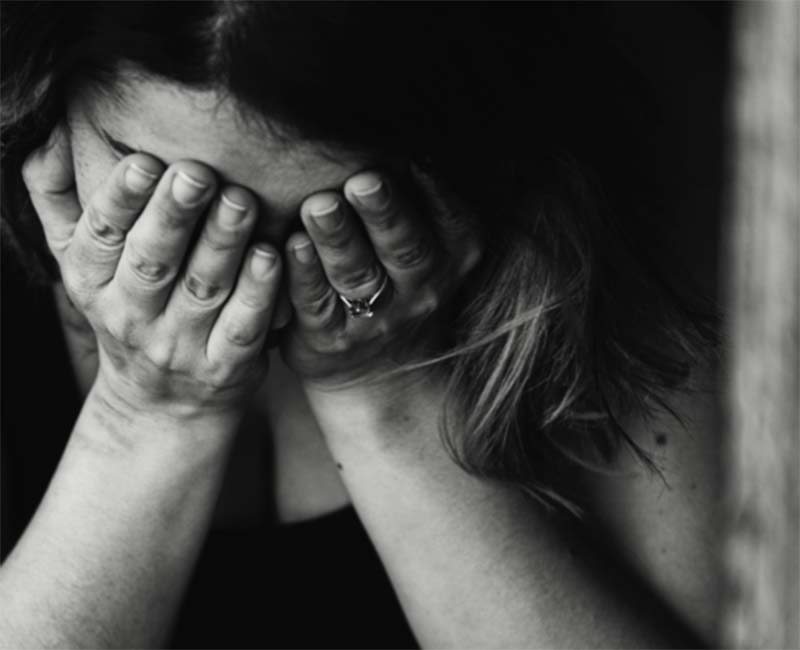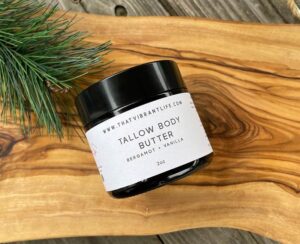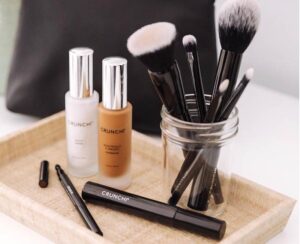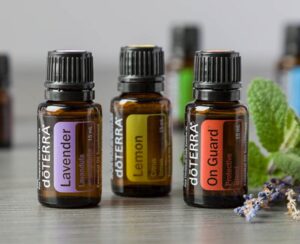Anxiety disorders are the most common mental illness in the U.S., affecting 40 million adults in the United States age 18 and older, or 18.1% of the population every year. The CDC has told us that this is one of the top risk factors for experiencing greater complications with Covid-19 is fear and anxiety. This is a rather overwhelming fact when so many are dealing with just this exact thing, at a critical level, due to circumstances surrounding Covid-19.
Something to understand is that anxiety disorders are highly treatable, yet only 36.9% of those suffering receive treatment.
People with an anxiety disorder are three to five times more likely to go to the doctor and six times more likely to be hospitalized for psychiatric disorders than those who do not suffer from anxiety disorders.
Anxiety disorders develop from a complex set of risk factors, including genetics, brain chemistry, personality, and life events (emphasis on this last one right now). (Anxiety & Depression Association of America)
Most of us have at least experienced some form of anxiety in our lives. When someone mentions anxiety, we can typically all empathize to a degree. However, anxiety lives on a pretty broad spectrum and for some it can be quite debilitating.
Typically, if you go to your primary care physician and you tell them you are dealing with anxiety they are very quick to prescribe a medication. Now, I will not argue that at times that might be absolutely necessary. However, what this approach does is quiets the symptoms without dealing with the root cause. What happens then? It will likely cause side effects that then have to be dealt with and you will still have the underlying problem lingering. For some, the medications just don’t work or not well enough. OR, the side effects are just too great.
I personally went on a medication years ago when I was a single mom (my son was a toddler), I was going to college AND working full-time. Stress was high for sure! I had an episode where I had extreme (and quite scary) chest pain. The doctors couldn’t figure out what was wrong with me and even thought I might be having an aneurysm. I was sent to the ER where the doctor there prescribed me some medications to calm me, told me I was stressed and sent me on my way. I then went to my primary care physician who put me on an anti-anxiety medication. I was hesitant, and yet followed through. At first I kind of liked the chilled out feeling it gave me. I even lost a couple of pounds effortlessly. But then things rapidly changed. The scale then went UP dramatically (well, 6 lbs in a matter of a couple of weeks on my 5’4 frame was a lot) AND I noticed I just didn’t really care…about anything. I was just FLAT. What really bothered me is that I typically used exercise to manage stress and moods and found that I could’ve cared less about exercise! Needless to say, I weaned myself off (*side note: I don’t recommend weaning yourself off of medication if you have severe anxiety and/or you’ve been on the medication for any length of time! This was not the case for me).
So, how does this even happen? Why do we experience anxiety?
There is no simple answer for this, as I am sure you know. It is never just one thing for almost any issue we deal with mentally or physically. We can’t just point a finger at a tough childhood, stress, genes or diet; it is often a combination of things that make us more susceptible to anxiety. With that being said, it is important to take a multi-pronged approach when trying to manage and/or reduce anxiety. Here are 5 things (there are many more, but let’s start here) that you might consider implementing for yourself:
*Please keep in mind that what works for me or your best friend or your neighbor may not work for you. We are all very unique even in this and must take an approach that works for our unique selves. Always listen to your body!
1) NUTRIENTS
According to Chris Kresser, “there are many nutrients that play an important role in mental health: B12, folate, zinc, copper, EPA and DHA, vitamin D, choline, B6, riboflavin, just to name a few”. In order to know where you are deficient, it is a very good idea to have your micronutrient levels tested by your doctor. If they won’t do it (which they should!), you can order your own online here. We sometimes have deficiencies we wouldn’t know about because our bodies aren’t processing our nutrients correctly or absorbing them the way they should be, so I do recommend testing.
2) MAGNESIUM
Magnesium gets it’s own place in this lineup because I recommend that EVERYONE supplement with this mineral! Over 80% of adults are deficient in magnesium due to soil depletion, gut dysbiosis, the use of antibiotics and poor diet. This micronutrient is responsible for over 300 biochemical reactions in our body. It would just make sense then that it plays into anxiety, wouldn’t it? Magnesium is known to have a calming effect on the body. It can help you relax, soothe sore muscles, help you sleep better, mitigate migraines, calm restless legs, etc.
You can get magnesium through the diet by eating magnesium rich foods such as:
-
- Spinach
- Almonds
- Cashews
- Avocados
- Pumpkin Seeds
- Broccoli
- Brussels Sprouts
I typically recommend using a supplement as well. When looking for a supplement, steer clear of Magnesium Oxide. This is a form that is only absorbed by the body by about 4%, which makes it hardly worth the money.
Some good forms to look for are:
-
-
- Magnesium Glycinate
- Citrate
- Threonate
- Malate
-
It is important that you invest in a form that is more bioavailable, otherwise it won’t do it’s job! Dr. Josh Axe has some really good information on magnesium here (including more about what all it is involved in in our bodies).
3) COPAIBA ESSENTIAL OIL
Both Copaiba and CBD oil bind to cannabinoid receptors that we all have in our central and peripheral nervous systems (this makes up the endocannabinoid system), in the brain, organs, connective tissues, glands, and immune cells. “In each tissue, the cannabinoid system performs different tasks, but the goal is always the same: homeostasis, the maintenance of a stable internal environment despite fluctuations in the external environment” Dustin Sulak, DO.
We have two known types of cannabinoid receptors, CB1 & CB2. CB1 are found in the nerve cells in the brain and have to do with memory and pain regulation. Phytocannabinoids are plant substances that stimulate cannabinoid receptors; both CBD and Copaiba are examples of these phytocannabinoids. CB2 are connected to the immune system; they help reduce inflammation and support healthy immune function.
The main component of Copaiba (which comes from Copaifera trees in the Brazilian Amazon) is beta-caryophyllene which binds to CB2 receptors in particular. dōTERRA’s Copaiba essential oil is actually made up of 60% of beta-caryophellene (and only about 35% in CBD oil)!
And how does this all relate to anxiety? Neuroinflammation can cause anxiety. By targeting CB2 receptors, we can potentially reduce such neuroinflammation, relaxing the system and easing anxiety.
Benefits of Copaiba over CBD are cost (Copaiba is often a fraction of the cost for the same amount), more BCP per dose (beta-caryophellene), none of the controversy involved in using this substance AND, With doTERRA’s extensive 3rd party and open source testing, you know that the product won’t contain any pesticides or heavy metals (which can be a large cause of anxiety).
Copaiba can be used aromatically by diffusing, applying it topically to affected areas or internally (I use the capsules, but you can just put a drop under your tongue!
To learn more go here & feel free to reach out with any questions!
4) REDUCE STRESS
I know this is easier said than done; but it is critical!! Stress (regardless of where it comes from) will cause “changes in the output of stress hormones like DHEA and cortisol and pregnenolone, which in turn affects the production of many other hormones and neurotransmitters in the body,” according to Chris Kresser. Stress is also one of the main causes behind inflammation which is the culprit behind chronic conditions such as autoimmune conditions like rheumatoid arthritis, crohn’s disease, asthma, depression, Alzheimer’s, eczema, ANXIETY…(the list goes on and on…MS, lupus, inflammatory bowel disease (IBD)….
We can all do certain things to reduce stress, like get more sleep, have better boundaries, reduce screen time (this constant stimulation causes stress whether you’d like to believe it or not!), reduce toxic load in your life (this is a HUGE stress on the body!) like chemicals from toxic cleaning products, body products, make up, ingredients in processed foods, pesticides, etc. Sometimes we need to reach out for added support to wade through of this stuff with a counselor or coach; don’t ever feel like you have to figure it all out alone!
5) EXERCISE
According to the US National Library of Medicine National Institutes of Health, “numerous epidemiological studies have shown that exercise improves one’s self-esteem, and a sense of wellbeing…. Adults who engage in regular physical activity experience fewer depressive and anxiety symptoms, thus supporting the notion that exercise offers a protective effect against the development of mental disorders”.
This is an amazing research article to read if you’d like to dive in a little deeper to the “why” behind exercise reducing anxiety: Effects of Exercise and Physical Activity on Anxiety. The impact is pretty astounding! With just a little bit of regular exercise you will cause actual physiological changes and adaptations in your body. “Studies have shown that regular aerobic exercise is associated with lower sympathetic nervous system and hypothalamic-pituitary-adrenal (HPA) axis reactivity” (NLMNIH) which means less anxiety!
Before you start getting high anxiety over the thought of regular exercise, understand that I am not encouraging you to start training for a marathon or take up a CrossFit class (unless those things light you up inside!). I am talking about getting out and walking briskly so that you SWEAT and your heart rate stays up for a steady 20 minutes or so. I’m saying take a yoga class, get on your bike a few times a week, dance in your living room, swim, hike, ride a unicycle 🙂 Whatever it is, do something that you LOVE! Do it for a minimum of 20 minutes and 3-5 days a week (if you can get outside for a least some of this the healing properties of the sunlight will only make you feel even better)!
There you are; 5 things you can target in your life to help ease anxiety. Anxiety is no joke. It is important that you understand that a lot of people experience this and you might not even know it! It’s also important to understand that you really can do something about it; it doesn’t have to control your life. <3




